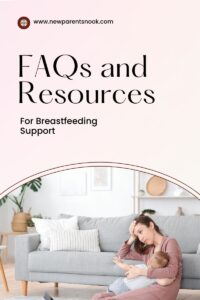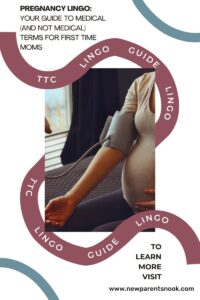Some links on our blog are affiliate links, meaning at no extra cost to you, we may earn a commission if you purchase through them. We participate in the Amazon Affiliate Program, and we recommend products we believe in. Your support helps us keep providing valuable content. Thank you!
Throughout pregnancy, regular prenatal care is crucial to monitor the health of both the mother and the baby.
Each trimester brings its own challenges and joys, and the experience can vary significantly from person to person.
First Trimester (Weeks 1-12)
Development
- Embryonic Stage: The first 8 weeks are crucial as the embryo forms the basic structures of all major body systems.
- Organogenesis: This is the process where the embryo’s organs form and begin to function.
- Cell Differentiation: Cells rapidly divide and differentiate into specific types, laying the groundwork for all body parts and systems.
- Heartbeat: The baby’s heartbeat can be detected as early as 6 weeks.
Physical Changes in Mother
- Fatigue: Due to increased levels of progesterone and the body’s additional energy expenditure.
- Morning Sickness: Nausea and vomiting, influenced by hormonal changes, can occur at any time of the day.
- Breast Changes: Increased tenderness and size, along with darkening of the areola, as the body prepares for breastfeeding.
- Frequent Urination: The growing uterus puts pressure on the bladder.
Hormonal Changes
- Progesterone and hCG: These hormones increase significantly to support the pregnancy, affecting nearly every organ in the body.
- Estrogen: Begins to rise, which is vital for the development of the baby and the health of the placenta.
Important Considerations
- First Prenatal Visit: Usually occurs around 8 weeks. It includes medical history review, initial examinations, and setting the stage for prenatal care.
- Prenatal Vitamins: Essential for providing necessary nutrients like folic acid, which is crucial for preventing neural tube defects.
- Lifestyle Adjustments: Avoiding alcohol, tobacco, and certain medications. Also, being cautious with certain foods to prevent listeriosis.

Second Trimester (Weeks 13-26)
Development
- Growth and Refinement: The fetus grows rapidly, and features like fingers and toes become more defined.
- Sensory Development: The fetus starts to hear and may react to sounds. The eyes begin to move, although the eyelids remain closed.
Physical Changes in Mother
- Abdominal Growth: The uterus grows, making the pregnancy more visible.
- Quickening: Initial movements of the baby are often felt between 18 and 22 weeks.
- Reduced Nausea: Many women find relief from early pregnancy symptoms.
Hormonal Changes
- Estrogen and Progesterone Levels: Continue to rise, supporting the growing fetus and preparing the body for breastfeeding.
Important Considerations
- Anatomy Scan Ultrasound: A detailed ultrasound to check the fetus’s development and the placenta’s position.
- Monitoring Weight and Nutrition: Adequate and balanced nutrition is essential for fetal growth.
- Physical Activity: Continuation or initiation of moderate exercise is generally recommended.

Third Trimester (Weeks 27-40)
Development
- Rapid Growth: The fetus gains weight quickly in preparation for birth.
- Organ Maturation: Lungs are the last to mature, crucial for the baby’s ability to breathe independently after birth.
Physical Changes in Mother
- Back Pain and Heartburn: Due to the expanding uterus and the baby’s pressure on internal organs.
- Swelling: Common in the feet and hands due to increased fluid retention.
- Braxton Hicks Contractions: Occasional, irregular contractions that are a normal part of preparation for labor.
Hormonal Changes
- Relaxin and Progesterone: Continue to relax pelvic ligaments and prepare the cervix for childbirth.
Important Considerations
- Frequent Prenatal Visits: Monitoring the health of both mother and baby becomes more frequent.
- Birth Plan: Discussing preferences for labor and delivery, including pain management and birthing positions.
- Baby Positioning: Monitoring the baby’s position to ensure it is optimal for birth, typically head-down.
Overall
Pregnancy is a time of significant physical and emotional changes.
Each trimester has its unique characteristics and challenges.
Regular prenatal care and good communication with healthcare providers are key to managing these changes and ensuring the health and well-being of both mother and baby.
The experience of pregnancy can vary widely among individuals, but understanding these general stages can help expectant parents know what to anticipate.
Here are some recommendations for you to enjoy:
Books:
“What to Expect When You’re Expecting” by Heidi Murkoff and Sharon Mazel
“The Mother of All Pregnancy Books” by Ann Douglas
“Expecting Better: Why the Conventional Pregnancy Wisdom Is Wrong—and What You Really Need to Know” by Emily Oster
We’re Pregnant! The First Time Dad’s Pregnancy Handbook
Apps:
The Bump
BabyCenter’s Pregnancy Tracker
Sprout Pregnancy
Pregnancy+
Ovia Pregnancy Tracker

“Being a mother is learning about strengths you didn’t know you had.”
– Linda Wooten







